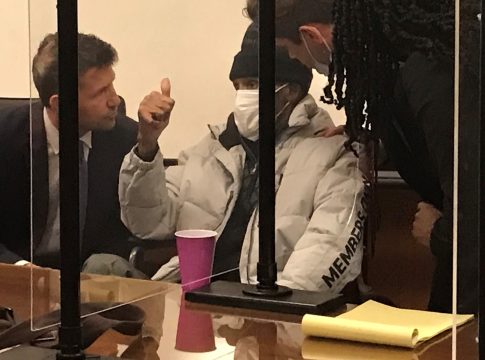Cleveland Agrees to $7.9 Million Settlement in Wrongful Imprisonment Case
CLEVELAND, Ohio – In a significant development in the ongoing conversation about justice and accountability, the city of Cleveland has reached an agreement to pay $7.9 million to settle a lawsuit brought forth by the estate of Isaiah Andrews. After spending an astonishing 45 years behind bars for a murder he did not commit, Andrews’ case represents one of the longest wrongful imprisonments in U.S. history. He passed away in 2022 at the age of 83, shortly after being exonerated.
Settling for Justice
The settlement amount is to be distributed over five years among Andrews’ estate and his more than 30 relatives. This recent payout comes on the heels of an additional $3 million previously awarded by the state of Ohio, acknowledging the years of suffering endured by Andrews due to a miscarriage of justice.
A Brief Taste of Freedom
Andrews was exonerated in 2021 after a second trial revealed critical flaws in his original conviction from 1975. Unfortunately, he had little time to relish his newfound freedom. Diagnosed with esophageal cancer, he died less than a year after the ruling. Charles Jackson, a fellow exoneree who lived with Andrews, recounted that Andrews felt too weak to celebrate, merely wanting to find comfort in bed. His attorneys expressed profound regret that he did not live to witness the settlement.
Evidence Concealed
The Ohio Innocence Project, which took on Andrews’ case in 2015, uncovered significant evidence that had been hidden during his original trial. Documents revealed that Cleveland police initially identified another man, Willie Watts, as a suspect in the murder of Andrews’ wife, Regina, who was found stabbed to death in Forest Hills Park. The failure to disclose this key information ultimately led to Andrews’ wrongful conviction, which was overturned in 2020.
Legal Hurdles and Appeals
The legal battle was fraught with challenges. Initially, U.S. District Judge James Gwin dismissed the lawsuit, attributing the responsibility for the missing evidence to county prosecutors, who are typically shielded from civil liability. However, in a pivotal turn, a federal appeals court revived the lawsuit, allowing a jury to consider whether police officers had concealed important documentation.
Commitment to Change
In addition to compensating Andrews’ family, part of the settlement is earmarked for organizations focused on preventing wrongful convictions. Andrews’ attorneys have already pledged $50,000 to Cleveland State University College of Law’s Wrongful Conviction Clinic. Attorney Sarah Gelsomino, representing the legal team, noted that Andrews’ aspirations extended beyond personal vindication; he sought systemic change to ensure that innocent individuals would never again be wrongfully prosecuted.
This ongoing case highlights the critical need for reform in the justice system, emphasizing the grave impact of wrongful convictions on innocent lives.

Focuses on crime, public safety, and regional events.
Bio: Marcus is a community-based journalist passionate about reporting impactful stories that matter most to readers.

